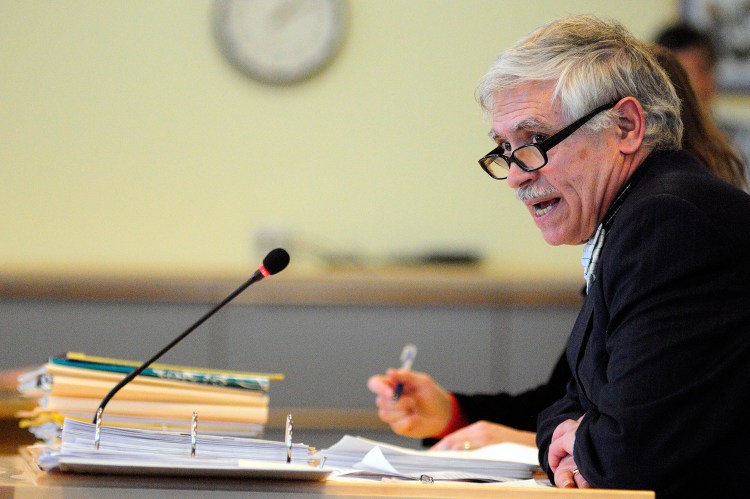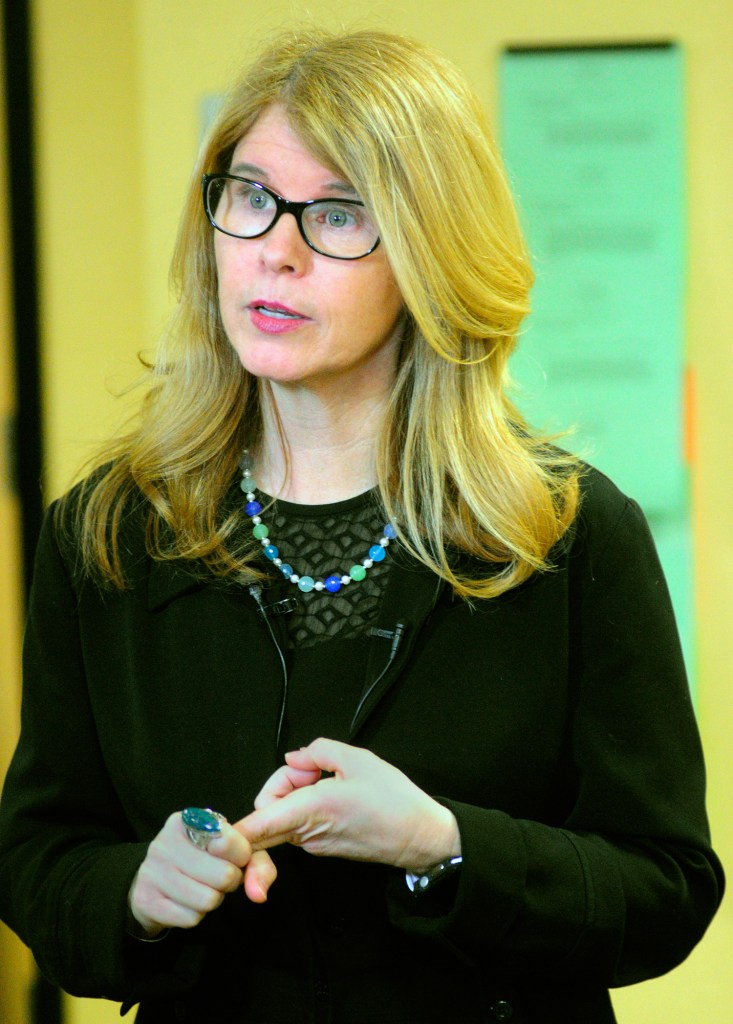AUGUSTA — Sen. Tom Saviello’s Medicaid expansion bill received a chilly reception from his fellow Republicans and the LePage administration Tuesday.
The Wilton lawmaker received support from Democrats, however, and remained undeterred.
“It’s just the right thing to do,” said Saviello, who believes the expansion he presented to the Health and Human Services Committee would help fight the state’s heroin epidemic by providing more access to treatment.
He is teaming with a fellow moderate Republican, Sen. Roger Katz of Augusta, on a compromise plan that would provide insurance to about 60,000 Mainers. A previous effort led by the two senators in 2014 fell two votes short in the House of overriding a veto by Gov. Paul LePage. All told, Medicaid expansion has been defeated five times in Maine.
While Saviello believes the political climate to override a promised LePage veto may be improved this year, he acknowledges that he has a “big hill to climb” to persuade his colleagues to vote for expansion.
“If Republicans can get around the rhetoric, they can vote for it,” Saviello said. “I am hopeful that more people will see the truth about expansion and make their decisions based on the facts in front of them.”
HEROIN CRISIS COULD ALTER OUTCOME
The compromise plan would be similar to Medicaid expansions in other states with divided government, such as Arkansas and Iowa, that used the Affordable Care Act’s marketplace as a mechanism to provide Medicaid insurance. In all, 31 states have some form of Medicaid expansion, and Maine remains the only state in New England to spurn the move.
Despite the failed efforts to expand Medicaid in Maine over the past three years, Saviello believes the consensus among state leaders about the severity of the heroin crisis could make a difference this time.
Saviello said someone he knew died from a drug overdose in December, so the issue has become especially important for him personally.
“My primary passion to get this bill passed is to help with the drug addiction crisis,” he said.
His proposal mimics other state plans, often called the “private option,” which require beneficiaries to pay a small premium rather than having the insurance be entirely free.
Under Saviello’s bill, those earning between 100 percent and 138 percent of the federal poverty level would have to pay a small monthly premium for insurance, totaling no more than 5 percent of income. Under a traditional Medicaid expansion, people in those income categories wouldn’t pay any premiums.
Saviello said he is looking forward to the “fiscal note” that will be attached to the bill, which will be written in the coming weeks by the nonpartisan Office of Fiscal and Program Review, a state agency that works for the Legislature. He said the fiscal note – which he predicts will show a net savings – may cut through rhetoric by some Republicans who argue that Medicaid expansion would cause major problems in the state budget.
Saviello pointed to a 2015 study by a New York health consulting firm, Manatt Health Solutions, that said Maine would realize a net savings of $27 million by expanding Medicaid. The federal government pays for 100 percent of the cost of expansion through 2016, but the federal share gradually declines to 90 percent by 2020. However, administrative costs associated with expansion are reimbursed at lower rates.
PLAN TOO EXPENSIVE, CRITICS SAY
Mary Mayhew, health and human services commissioner, said during a news conference Tuesday that an in-house analysis by the administration estimates that Medicaid expansion would cost the state $315 million over the next five years.
“Health care is going to be expensive,” Mayhew said. She noted that previous Medicaid expansions in Maine had “expanded beyond the ability” of the state to pay, creating budget problems that have been resolved since the LePage administration tightened eligibility in recent years. Because of the new eligibility rules and an improved economy, the number of people on Medicaid in Maine declined from 355,000 in 2011 to 287,000 in 2015.
But Saviello said many states have saved money when they expanded Medicaid under the Affordable Care Act because the federal government pays higher reimbursement rates for services such as mental health and substance abuse treatment, which decreases the amount the state must contribute. Medicaid is a federal program operated by the state and funded by a blend of state and federal funding.
Republicans on the Health and Human Services Committee lambasted Saviello’s proposal.
Rep. Deborah Sanderson, R-Chelsea, called his Medicaid expansion a “fiscal tsunami.”
“Our Medicaid budget is fiscally stable. Why would you want to put it into a tailspin now?” Sanderson said.
The committee vote was a 6-6 deadlock, with all Republicans voting “ought not to pass” and Democrats favoring expansion. Rep. Peter Stuckey, D-Portland, was absent, and was expected to vote with fellow Democrats to support expansion. He has 48 hours to cast his vote.
The bill is expected to go before the full House and Senate within the next month.
The compromise plans in other states have been approved even in state legislatures with Republican majorities or a Republican governor.
Send questions/comments to the editors.





Success. Please wait for the page to reload. If the page does not reload within 5 seconds, please refresh the page.
Enter your email and password to access comments.
Hi, to comment on stories you must . This profile is in addition to your subscription and website login.
Already have a commenting profile? .
Invalid username/password.
Please check your email to confirm and complete your registration.
Only subscribers are eligible to post comments. Please subscribe or login first for digital access. Here’s why.
Use the form below to reset your password. When you've submitted your account email, we will send an email with a reset code.